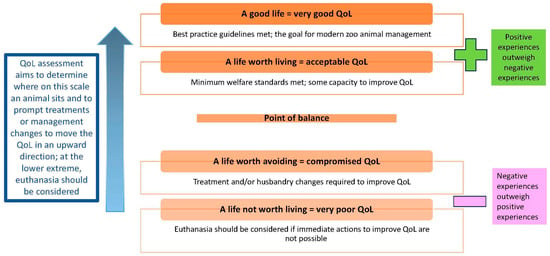If you are currently searching for a information about Why Look At Animals By John Berger, you’ve come to the right place. We enthusiastically strive to compile information that may meet your search criteria regarding this subject.
Why Look At Animals By John Berger is a cinematic masterpiece that has captured the attention of many viewers. The story presented in this film is not only captivating but also provides a profound perspective on the theme it explores. With meticulous direction and mesmerizing performances from the cast, this film successfully creates an unforgettable cinematic experience.
In the development of its plot, Why Look At Animals By John Berger delivers a wealth of emotions and tension, making it a suitable choice for audiences from various walks of life. From majestic scenes to moments filled with surprises, the film effectively builds an atmosphere that is hypnotic, making it a work worth experiencing.
The Animals Reader: The Essential Classic and Contemporary Writings –
Abstract This article is a close reading of John Berger’s highly influential essay “Why look at animals?” and its implications for thinking about animals in modernity. Berger analyses the alienation of human and animal as a consequence of nineteenth-century capitalism, and contrasts it with an earlier period when human-animal relations were more integrated. Despite the power and simplicity of
![Why Look At Animals By John Berger Why Look At Animals By John Berger]()
Source Image: absoluteescapes.com
Download Image
Sep 18, 2009At his best he shows how everyday experiences – a swallow straying into a room, the performances of primates in a zoo, a peasant carving – hold the aesthetic key to unlock the true order of things.

Source Image: amazon.com
Download Image
Why Look at Animals?
John Berger broke new ground with his penetrating writings on life, art and how we see the world around us. Here he explores how the ancient relationship between man and nature has been broken in the modern consumer age, with the animals that used to be at the centre of our existence now marginalized and reduced to spectacle. Throughout history, some books have changed the world. They have

Source Image: orionmagazine.org
Download Image
Why Look At Animals By John Berger
John Berger broke new ground with his penetrating writings on life, art and how we see the world around us. Here he explores how the ancient relationship between man and nature has been broken in the modern consumer age, with the animals that used to be at the centre of our existence now marginalized and reduced to spectacle. Throughout history, some books have changed the world. They have
Abstract In his essay, ‘Why Look at Animals?’ (1977), John Berger pays attention to the moments ‘of surprise’ when humans and other animals comprehend each other: ‘when he is being seen by the animal, he is being seen as his surroundings are seen by him’.
In addition to its narrative aspects, Why Look At Animals By John Berger also highlights its visual beauty. The stunning cinematography and meticulous set choices are pillars supporting the overall viewing experience. Every frame in this film is crafted with care to provide a captivating aesthetic.
Orion Magazine – What’s the Use of Pets?
Abstract This article is a close reading of John Berger’s highly influential essay “Why look at animals?” and its implications for thinking about animals in modernity. Berger analyses the alienation of human and animal as a consequence of nineteenth-cen- tury capitalism, and contrasts it with an earlier period when human-animal rela-
Why Look at Animals? – John Berger – Elif the Reader

Source Image: elifthereader.com
Download Image
Why Look at Animals? by John Berger | Goodreads
Abstract This article is a close reading of John Berger’s highly influential essay “Why look at animals?” and its implications for thinking about animals in modernity. Berger analyses the alienation of human and animal as a consequence of nineteenth-cen- tury capitalism, and contrasts it with an earlier period when human-animal rela-

Source Image: goodreads.com
Download Image
The Animals Reader: The Essential Classic and Contemporary Writings –
Sep 18, 2009At his best he shows how everyday experiences – a swallow straying into a room, the performances of primates in a zoo, a peasant carving – hold the aesthetic key to unlock the true order of things.

Source Image: routledge.com
Download Image
Why Look at Animals?
November 20, 2015 It’s been 38 years since Berger’s essay “Why Look at Animals?” was published, but his commentary on the current state of things is even further a prediction into today. Berger describes the relationship between animal and human through the medium of the gaze. (A topic the writer and thinker is well-known for.)

Source Image: penguin.co.uk
Download Image
John Berger and the 50th anniversary of Ways of Seeing – English and Drama blog
In Books Why Look at Animals? is the third book I’ve read by John Berger, and I think it’s the book I’ve been most impressed with. Have you ever wondered why we take care of animals? Why do we keep all kinds of animals in our home, with us, and why do we need to establish indescribable relationships with them? Why Look at Animals? Advertisements

Source Image: blogs.bl.uk
Download Image
Autograph | On Using Photography to Unmask
John Berger broke new ground with his penetrating writings on life, art and how we see the world around us. Here he explores how the ancient relationship between man and nature has been broken in the modern consumer age, with the animals that used to be at the centre of our existence now marginalized and reduced to spectacle. Throughout history, some books have changed the world. They have

Source Image: autograph.org.uk
Download Image
Animals | Free Full-Text | Quality-of-Life Assessments in Zoo Animals: Not Just for the Aged and Charismatic
Abstract In his essay, ‘Why Look at Animals?’ (1977), John Berger pays attention to the moments ‘of surprise’ when humans and other animals comprehend each other: ‘when he is being seen by the animal, he is being seen as his surroundings are seen by him’.

Source Image: mdpi.com
Download Image
We hope this summary can provide a clear and satisfying overview for you who are searching for information about the film titled Why Look At Animals By John Berger. Watch this film soon and enjoy an unforgettable cinematic experience.
Why Look at Animals? by John Berger | Goodreads
Animals | Free Full-Text | Quality-of-Life Assessments in Zoo Animals: Not Just for the Aged and Charismatic
Abstract This article is a close reading of John Berger’s highly influential essay “Why look at animals?” and its implications for thinking about animals in modernity. Berger analyses the alienation of human and animal as a consequence of nineteenth-century capitalism, and contrasts it with an earlier period when human-animal relations were more integrated. Despite the power and simplicity of
Why Look at Animals? Autograph | On Using Photography to Unmask
In Books Why Look at Animals? is the third book I’ve read by John Berger, and I think it’s the book I’ve been most impressed with. Have you ever wondered why we take care of animals? Why do we keep all kinds of animals in our home, with us, and why do we need to establish indescribable relationships with them? Why Look at Animals? Advertisements
Thanks for reading the article about Why Look At Animals By John Berger! You are welcome to contribute by sharing opinions, ideas, or even contributing with your own article for the development of this blog. Let’s contribute and join us.









